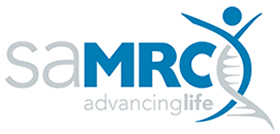
On 18 September, Andrew Russell from the South African Canegrower’s Association wrote in Daily Maverick that South Africa should get rid of the Health Promotion Levy (also known as the sugar tax). Not only is he wrong but he has distorted and offered falsehoods. This response explains why.
Everybody agrees that excess sugar is bad
Even big producers like Coca-Cola and Nestlé have admitted this fact. The false argument provided by Mr Russell, that there is no evidence that sugar leads to increased rates of obesity and non-communicable diseases is very similar to previous industry distortions of scientific facts that are promulgated in the name of profit.
Sugar intake, particularly through drinking sugar-sweetened beverages, has been shown, repeatedly and consistently, to increase weight gain and obesity leading to significant growth in the numbers of patients with cancer, diabetes and cardiovascular disease, and ultimately premature death.
A potato is, in fact, not a soda
Unprocessed carbohydrates including vegetables and fruit, as opposed to products with processed foods are an essential part of the human diet. Replacing food items with sugary drinks with no nutritional value, contributes to malnutrition.
The tax is working
Even over the short period that the sugar tax has been in effect, studies from South Africa have shown that the tax has led to South Africans, especially the youth, buying less sugary drinks, and has encouraged the sugary drinks manufacturers to reduce sugar content in these drinks. This means that there is an overall projected reduction in rates of being overweight and obesity. Studies from multiple countries have also shown compelling evidence that sugar taxes work.
We have heard all of this before… from alcohol and tobacco
Nutrition researchers have long noted the similarities between tactics used by tobacco, alcohol and sugar companies. For example, quick, commissioned studies to “support” their own argument that job losses are caused by the tax in these industries.
The documented misuse of evidence around the South African sugar tax is reminiscent of tactics in the 1970 and 1980s to try and suppress the link between smoking and lung cancer.
The world is waking up to the sugar tax revolution
The Canegrower’s Association refers to two other country instances where sugar taxes were cut or reduced since 2013 claiming to represent a global trend. In reality, more than 50 jurisdictions have introduced sugar taxes, predominantly in the last decade.
With respect to the United Kingdom, the new Prime Minister’s comments to do away with the tax are not without resistance. Dennis Campbell for The Guardian, in response to the newly elected Liz Truss’s proposals, commented that “[t]here are few policies that are good for business, good for health and good for government. The soft drinks industry levy is one of them […] It raises £300m a year for the Treasury and has led to a cut of up to 30% in the sugar content of many soft drinks, which have been linked to tooth decay, obesity, type 2 diabetes, and heart disease.”
The sugar industry cannot subsidise its internal fraud with our health (and our money)
Just last week, former Tongaat Hulett executives appeared in the Durban high court on charges of fraud amounting to R3.5-billion. It was further reported that “their greed cost nearly 8,000 workers in Tongaat’s sugar division and its milling operations their jobs”.
Stop scapegoating the HPL
First, it would be interesting to know more about claims that the local sugar industry is currently actually unable to meet demand in South Africa (from several sources: here is another). Drought and failures in tariff protection, then severe flooding, protest action and a failure in close to a decade, to pivot into biofuels (as suggested in the sugar master plan) have all been noted as proven causes for hardship in the South African sugar industry.
We need to strengthen the tax
What is actually ill-conceived, to borrow a phrase, is the government’s failure to increase the evidence-based and effective South African sugar tax to its effective target of 20% to improve the health of all South Africans. At a minimum, this should be increased to adjust for inflation and fruit juices should be added to its scope.
We call on Treasury to increase the Health Promotion Levy to help save lives and to ensure that health policies are not driven by industry. These profit-making entities and their agents who market are responsible for our diseases. DM/MC
Mikateko Mafuyeka and Petronell Kruger are public health lawyers with the SAMRC/ Wits Centre for Health Economics and Decision Science.




